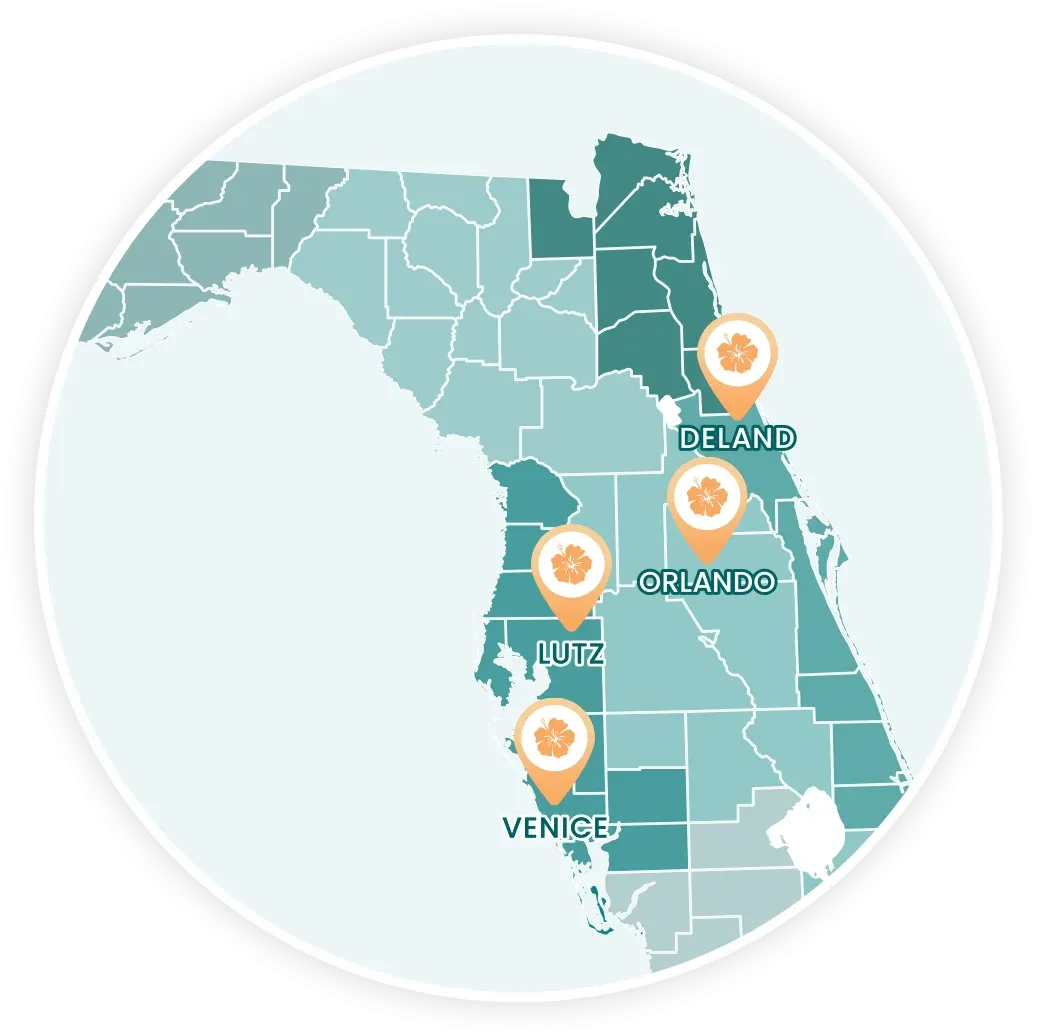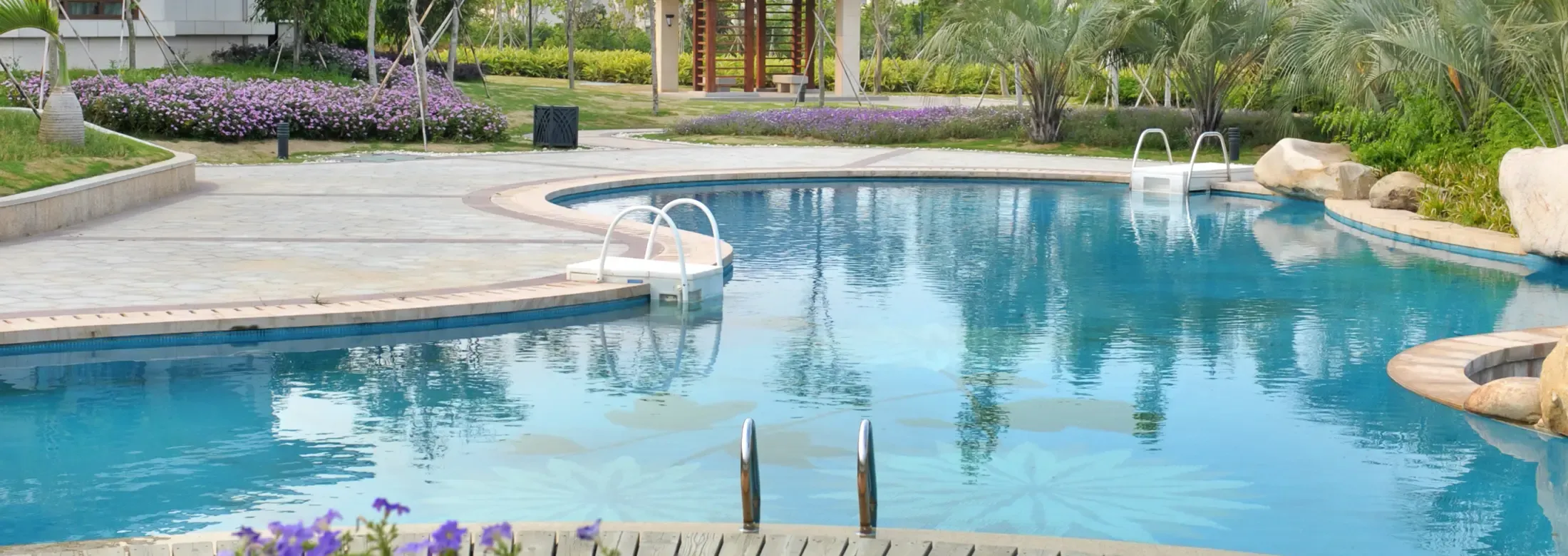
Pool Heater Repair & Installation
Tired of shivering in your pool during cooler months? Fiji Pools's pool heating solutions can transform your swimming experience. Our expert team has been enhancing pools for 52 years, ensuring year-round comfort and enjoyment for families across Central and Southwest Florida.
- Extend your swimming season beyond summer
- Alleviate joint and muscle pain with therapeutic warm water
- Improve sleep quality through relaxation
- Boost your property value with an all-season amenity
- Create lasting memories with family and friends
We offer tailored heating options to suit your needs, including eco-friendly solar systems and efficient heat pumps. Our state-licensed technicians will guide you through selecting and installing the perfect solution for your pool, ensuring optimal performance and energy efficiency. Experience the comfort of a perfectly heated pool - contact Fiji Pools today for a free consultation.
Pool Heating Options for Florida Homeowners
Pool heaters are essential for maximizing pool enjoyment in Central and Southwest Florida. As temperatures fluctuate, especially during cooler months, unheated pools can become uncomfortable or even unusable. This problem often leads to reduced pool usage and decreased property value. A quality pool heater solves these issues by maintaining a consistent, comfortable water temperature year-round.
At Fiji Pools, we offer comprehensive pool heating solutions, including energy-efficient heat pumps, eco-friendly solar heaters, and fast-acting gas heaters. Our expert team can help you select and install the ideal heating system for your specific needs and budget.
🌞 Solar Pool Heaters
Solar pool heaters use your existing pool pump to circulate water through specially designed solar collectors—typically mounted on a sunny roof or platform. As water flows through these collectors, it absorbs heat from the sun and returns to the pool at a warmer temperature.
Key Benefits
- Energy-efficient and eco-friendly – Harnesses the sun’s power with no fuel or electricity costs.
- Low long-term costs – After installation, ongoing operating expenses are minimal.
- Durable in Florida's climate – Built to withstand intense sun and seasonal storms.
- Ideal for consistent use – Best for homeowners who swim regularly and want to maintain a warm pool over longer periods.
Why Choose Helicol Solar Heating Systems?
- Patented individual tube design for maximum heat absorption.
- Wind-resistant mounting system ensures durability in high winds.
- Sleek, low-profile panels that blend into your home’s exterior.
- Requires minimal maintenance after installation.
Considerations
- Best performance requires consistent sun exposure.
- May take longer to heat the pool compared to gas heaters.
- Installation may require additional roof or surface area.
🔥 Gas Pool Heaters
Gas heaters burn natural gas or propane to heat pool water as it passes through the unit. Unlike solar or heat pumps, gas heaters don’t depend on weather conditions, offering consistent and fast heating anytime.
Key Benefits
- Heats water quickly – Ideal for on-demand or occasional use.
- Performs well in all weather – Not affected by air temperature or cloud cover.
- Compact and powerful – Requires less space than solar panels.
Ideal For:
- Pool owners who don’t use their pool daily but want to heat it quickly for specific occasions.
- Those in areas with limited sun exposure or shaded yards.
- Extending the pool season into Florida’s cooler months.
Considerations
- Higher operating costs due to fuel consumption.
- Requires proper ventilation and access to a gas line or propane source.
- Regular maintenance needed for burners, pilot lights, and gas connections.
⚙️ Heat Pump Pool Heaters
Heat pumps draw in warm ambient air, compress it to raise the temperature, and transfer that heat to your pool water. They use electricity to operate but are far more efficient than electric resistance heaters.
Key Benefits
- Energy-efficient – Uses ambient air heat to warm water, lowering energy bills.
- Consistent temperature maintenance – Ideal for regular use in Florida’s warm climate.
- Environmentally friendly – Lower emissions than gas systems.
Best For:
- Homeowners who swim frequently and want to maintain a steady pool temperature.
- Locations with reliable warm air temperatures, like Central and South Florida.
- Those looking for a balance between speed and energy savings.
Considerations
- Slower to heat water compared to gas heaters.
- Initial investment is typically higher than gas models.
- May require a dedicated electrical circuit for installation.

Choosing the Right Heater for Your Pool
Every pool and homeowner’s needs are different. The best heating solution depends on:
- Your swimming habits
- Your budget
- The layout and sun exposure of your property
- Your long-term energy goals
Need help deciding? Our team offers in-person consultations to evaluate your setup and recommend the most efficient and cost-effective solution tailored to your home.
Frequently Asked Questions About Pool Heaters
Installing a pool heater is one of the best ways to extend your swim season and get the most enjoyment from your pool—especially in Florida, where mild winters make year-round use a real possibility. Whether you’re exploring solar heating, considering a heat pump, or need the fast performance of a gas heater, these FAQs will help you understand your options and make an informed choice.
Which type of pool heater is best for Florida homes?
Florida’s warm, sunny climate makes solar heaters and heat pumps ideal for most homeowners. Solar systems take advantage of abundant sunshine to heat your pool with minimal operating costs, while heat pumps work efficiently in moderate to hot conditions and offer reliable, consistent heating. Gas heaters are a good fit for those who use their pool occasionally and want rapid heating on demand—especially in cooler months.
How long does it take to install a pool heater?
Installation time depends on the heater type and your existing pool setup. Most gas or heat pump installations can be completed in one to two days. Solar systems may take a bit longer due to the added step of mounting solar collectors. We’ll give you a clear timeline after assessing your pool during the initial consultation.
How much does it cost to operate each type of pool heater?
- Solar heaters have the lowest long-term costs, as they rely on the sun and require little maintenance after installation.
- Heat pumps use electricity but are energy-efficient and cost less to run than gas systems in Florida’s climate.
- Gas heaters have higher operating costs due to fuel usage, but they provide fast, powerful heating when needed.
How does a solar pool heater work?
A solar pool heater circulates pool water through solar collectors—usually mounted on the roof or in another sunny area—where it absorbs heat from the sun. The warmed water then returns to your pool. Many systems also include sensors and a control valve to optimize flow based on the sun’s intensity. Solar heaters are especially effective in sunny regions like Florida and have very low ongoing costs.
What makes Helicol solar heaters a good choice?
Helicol systems are built for efficiency, durability, and minimal maintenance. Their patented tube design captures maximum solar energy while resisting wind and weather damage. The streamlined installation process and sleek, low-profile panels make them a great fit for Florida homes where aesthetics and performance both matter.
How does a heat pump pool heater work?
A heat pump pulls in warm air from the atmosphere, compresses it, and transfers that heat to your pool water. It operates efficiently even in mild weather, making it well-suited for Florida. While not as fast as a gas heater, a heat pump is excellent at maintaining a steady pool temperature with lower energy usage.
What are the advantages of using a gas pool heater?
Gas heaters offer the fastest heating capability among all pool heater types. They’re ideal for pool owners who don’t swim every day but want the flexibility to heat the pool quickly for weekend use or special occasions. Since they don’t rely on sunlight or air temperature, they’re also effective on cloudy days or during sudden temperature drops.
How often should a pool heater be serviced?
Annual maintenance is recommended to keep your heater running efficiently and extend its lifespan. Maintenance tasks include cleaning the heat exchanger, checking gas or electrical connections, and ensuring proper water flow. Our team can provide a tailored maintenance schedule based on the type and model of your system.
Can I switch from one type of heater to another?
Yes. Whether you're upgrading from a gas heater to solar or replacing an outdated heat pump, our team can assess your setup and recommend the best solution. We'll handle the system modification and installation process to ensure a smooth transition.
Areas We Offer Pool Heaters
We proudly provide top-quality Pool Heaters services to homeowners throughout the surrounding areas, always going the extra mile to deliver results you can trust. If you don’t see your city listed, contact us today — we’re happy to let you know if we can help!




